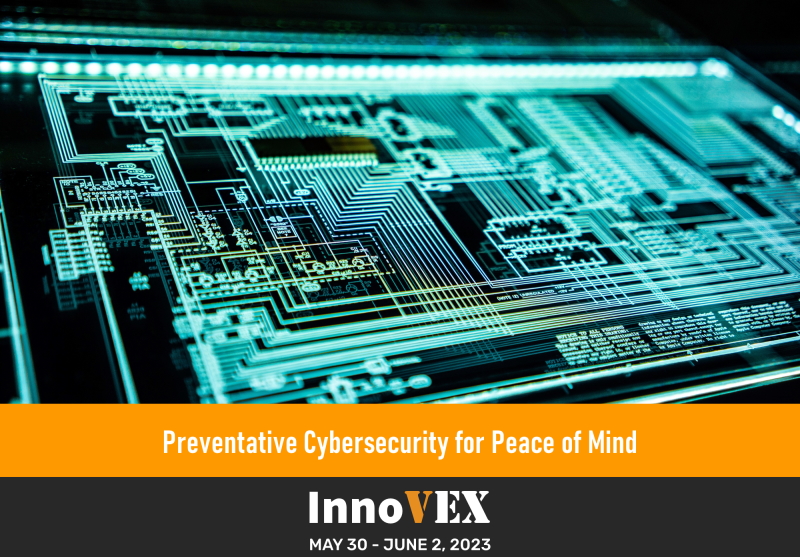
Many research institutes, consultancy groups, and industry leaders have recently published their reports on cybersecurity with focus on the expected trends in the near future. While the focuses of the predictions differ between each organization, there are several key similarities between the reports as they expect cybersecurity to play a more prominent role in the future. In addition, as many emerging technologies generally operate without strong guidelines or governance to control their directions; it is often just a matter of time before they are utilized for less-than-noble purposes.
Cyberattacks have rapidly grown in both frequency and intensity, but they have also grown in cost for the victims while the cost for the perpetrators have gone down. Current predictions include the worrying possibility of AI-powered cyberattacks which will focus on social engineering; to deceive people and coerce them to complying with the perpetrators’ demands. While the main countermeasures against cyberattacks focus on users employing the zero-trust security model whenever possible, this is far from the end-all be-all of modern cybersecurity measures.
This stance was pointed out during the InnoVEX 2022 Forum: The Opportunities and Challenges of Zero-Trust Security. Cybersecurity has evolved over the years and security methods considered conventional just a few years ago have turned from a must have into the bare minimum. Security today relies on various aspects that were never even considered before such as preemptive intelligence driven defense measures, SSDLC (Secure Software Development Lifecycle), supply chain management systems, and more.
Many of these innovations often come from well-known cybersecurity giants who have developed and tested their solutions against threats and attacks around the world. However, in a time when cybersecurity has become an arms race between threat agents and solutions provider, any improvement should be welcome, regardless of origin. Startups in cybersecurity might be able to offer niche solutions that well-established companies might not even consider before or utilize lesser known options in unprecedented ways.
The increasing variety with which threat actors exploit and breach systems' vulnerabilities mean organizations and users alike can no longer rely on singular solutions. Sometimes, the optimal solution might come from startups who focus on a singular issue or a singular threat and develop the best solutions for these problems. As cybersecurity trends often change drastically, rapidly, and without warning, niche solutions that might have been mostly a precaution a few months ago might become a key solution to resolving an emerging problem.
Rapid changes in macro situations have also made new cybersecurity solutions necessary. When working remotely/ working from home was growing and becoming more common in 2020 – 2021, there were several high-profile cases of cyberattacks that cost organizations a significant amount of money. Many of them happened because individual devices connected to public or home networks are often not secure enough and subsequently become an attack surface for threat actors.
As with health, cybersecurity needs to focus more on preventive measures than curative as often times even a split-second breach would have significant impact to the breached system. Protective measures such as VPNs, multi-factor authentication (MFA), or other methods might soon become standard if not outright requirements for the more security-minded organizations.
As computers and laptops are no longer the only device types in office settings, the solutions need to be device and OS agnostic. In addition, device application has also grown to be both home-use and work-use which means it will face different, yet larger threat surfaces. This means the protective measures need to be comprehensive and utilize a combination of technologies and methods to make sure they serve their intended purposes without being complicated to use.
Lydsec Digital Technology's Keypasco MFA solution offers this capability without infringing on the users’ personal privacy. As a password-free software solution, their technology is based on several patents with device identification application to prevent threat actors from accessing accounts and protects devices from various attack methods including phishing, man-in-the-middle attack (MitM), man in the browser attack (MitB), and more.
Cybersecurity will be a major trend in 2022 with cyber attacks expected to grow in frequency, intensity, and variety. This will affect both individual users as well as organizations as some threat actors consider no target to be too small. For cybersecurity, prevention should be the name of the game as the moment a threat actor gains entry to a system, it is often too late. While some measures might seem excessive, it might be a small price to pay for not only data security, but also for peace of mind.
InnoVEX 2023 is Open for Registration
InnoVEX welcomes innovative ICT startups from around the world, but is expected to cover the categories of: AI & IoT, Metaverse & XR, EV & Smart Mobility, ESG & Green Tech, Healthcare & Biotech, 5G Applications, Smart Manufacturing, and more. To help facilitate startups from around the world participate in InnoVEX, TCA offers early bird discounts until January 31. The early bird deal provides up to 25% reduction in booth fees for startups participating as individual exhibitors and will also include an exhibitor profile in the InnoVEX ONLINE platform active from May 1st to October 31st, 2023.
Click here to register for InnoVEX 2023.
Facebook: https://www.facebook.com/computexinnovex
Twitter: https://twitter.com/InnoVEX3
LinkedIn: https://www.linkedin.com/company/innovextaipei/
YouTube: https://www.youtube.com/c/InnoVEX_taipei/
Instagram: https://www.instagram.com/innovex_taipei/